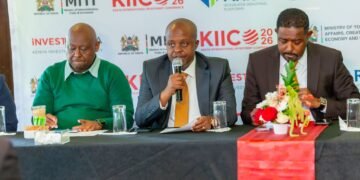In a move to boost trade efficiency in Nigeria, the Nigeria Customs Service (NCS) has integrated the Central Bank of Nigeria (CBN), the Federal Inland Revenue Service (FIRS), the Federal Ministry of Finance, commercial banks, and other key stakeholders into the newly launched B’Odogwu platform.
The B’Odogwu platform is a digital trade facilitation and integration system developed by the NCS to harmonize and streamline international trade processes across Nigeria. Designed as a centralized interface, the platform connects relevant government agencies involved in finance and regulatory oversight, enabling real-time data sharing, seamless cargo clearance, and improved decision-making.
This development is part of a broader push by the Nigerian government to reduce bureaucratic bottlenecks, enhance compliance, and foster transparency through automation and inter-agency collaboration. It aligns with global standards for single-window trade systems and is a key pillar in Nigeria’s agenda to create a digitized, investor-friendly trading environment.
At the Tin-Can Island Command, Comptroller Frank Onyeka reported that more than 90 percent of the initial integration challenges have already been resolved. According to him, the platform has significantly reduced demurrage charges, improving turnaround time for cargo clearance and reducing overall import costs.
Assistant Comptroller of Customs, Oyindamola Oladapo, who oversees ICT at the PTML Command, noted that most commercial banks are already connected to B’Odogwu, with ongoing efforts to onboard all remaining institutions. He described the system as a game-changer for port digitization and ease of doing business.
Other key agencies now integrated into the B’Odogwu platform include the Standards Organisation of Nigeria (SON), National Agency for Food and Drug Administration and Control (NAFDAC), National Insurance Commission (NAICOM), Port Health Services, and the National Environmental Standards and Regulations Enforcement Agency (NESREA).
By deepening institutional collaboration and automating procedures, Nigeria is positioning itself for faster, smarter trade processes while unlocking growth opportunities in the logistics and import-export sectors.






























































